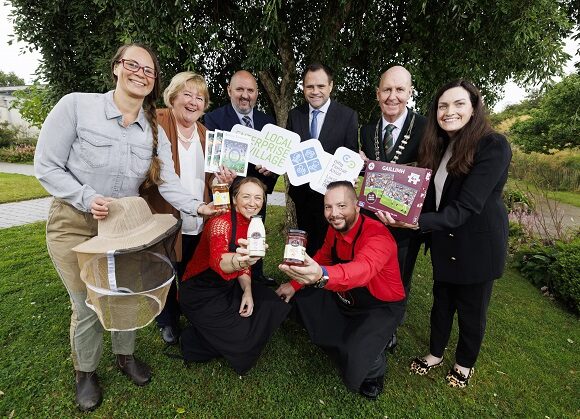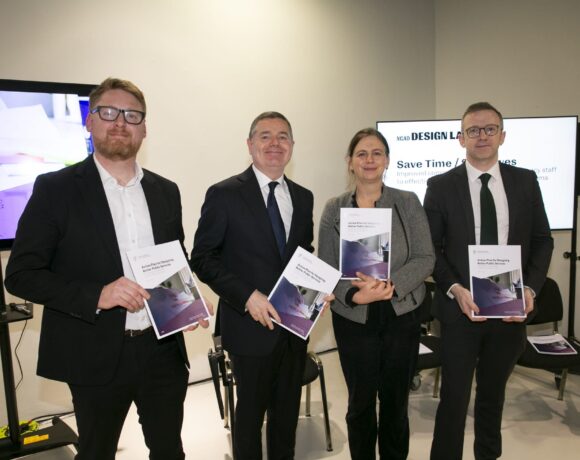Established back in 1592, Trinity College Dublin is Ireland’s oldest higher education institution and one of the seven “ancient universities” in the territory of the UK and Ireland. It’s the only constituent college of the University of Dublin, and was modelled after the colleges of Oxford and Cambridge. Today, Trinity College Dublin is Ireland’s top ranked university at 101st in the world. Over 17,000 students are currently enrolled across the university’s three faculties: Arts, Humanities and Social Sciences; Engineering, Mathematics and Sciences; and Health Sciences.
Aside from this, TCD is now offering a Msc in Smart and Sustainable cities. However, to many individuals, these topics are not fully understood. The text that follows will attempt to shed a some clarity on both the topics and course itself.
What is Smart & Sustainable Cities?
With thousands of smart-city initiatives around the world, smart urbanism is now one of the dominant models of urban development. Projects for smart cities involve the regeneration of existing urban areas as well as the creation of large new settlements, and have a major positive impact on the many environmental, social and economic systems that underpin the planet. Meanwhile, and with a strong overlap with smart city initiatives, cities around the world are reacting to broader environmental challenges, such as climate change through measures aimed at developing sustainable solutions.
Smart-city initiatives have a multi-dimensional nature. As projects that are aimed at improving urban spaces, they are deeply connected to issues of urbanisation and urban planning. Moreover, projects for smart cities involve the production of a number of technologies such as wireless sensor networks designed to produce data on how the city operates, and innovative efficient or low-waste electrical grids.
Therefore, because of their focus on technological innovation, the development of smart cities goes beyond the science of the city and is also the product of studies in computer science and engineering. Finally, once implemented, smart interventions take place not upon a blank canvas, but rather within complex ecological and social systems whose dynamics must be taken into account, in order to avoid environmental degradation and biodiversity loss. Particularly in terms of sustainability, the multidimensional nature of smart-city initiatives can be understood only through an interdisciplinary approach.

Learning Foundry (which is due for completion in 2023)
Smart & Sustainable Cities: The Course for you?
The new programme, which is the first dedicated programme of its kind, will provide students with an in-depth understanding of smart and sustainable cities, using (a) the tools of urban geography and planning to examine the spatial formation of smart cities; (b) methods in engineering and computer science to analyse the functions and applications of smart technologies, and (c) insights from ecology to explore the environmental impact of both ‘smart-city projects’ and wider transformations of contemporary cities.
The programme is thus of interest to a wide range of students from different backgrounds. This transdisciplinary master’s programme will give students both the technical and analytical skills they will need to effectively address the challenges of urban sustainability.
It will play a vital part in shaping Trinity’s organisation and research to achieve a healthy and sustainable planet. It will do this in a variety of ways. In developing the connections between conceptual and hands-on skills linking the smart city to sustainability, the masters will help achieve the transition to a healthy and sustainable planet.
In addition, through fostering interdisciplinary teaching, learning and project delivery it will allow for potential, further research collaborations to emerge between the participating Schools of Computer Science and Statistics, Engineering, and Natural Sciences
Smart & Sustainable Cities at Trinity
This new MSc in Smart and Sustainable Cities at Trinity approaches the study of smart and sustainable urbanism by drawing from the research based expertise of leading scholars in the area of “Engineering, Environment, and Emerging Technologies”, or E3.
The Masters in Smart and Sustainable Cities is the bringing together of a rounded understanding of both ‘smart cities’ and ‘sustainability’ as overlapping areas necessary for the analysis of contemporary cities.
The breadth of research across Trinity College can be combined to support a vision for a happy, green and cost-effective city, where we address the required optimisation of resources, harness the growth potential for business, reduce the city’s environmental impact, and improve citizens’ quality of life within urban environments.
Trinity set up the Future Cities Research Centre which undertakes multi-disciplinary research that enables, promotes and facilitates behavioural change for sustainability. The research is supported by the application of sensor, communication and analytical technological solutions to sustainability concerns in urban infrastructure such as energy, water, waste management and transportation systems.
Graduate Skills & Career Opportunities?
The new master’s degree programme is designed to meet the learning needs of students who want to enter an expansive but demanding employment market, preparing them for professional work in institutions and public or private companies, in the field of Smart and Sustainable Cities.
Your degree and what you’ll study?
The M.Sc. in Smart and Sustainable Cities will be delivered full-time over one year. The course comprises 8 compulsory modules, carrying 5 ECTS credits each, and a Dissertation module, carrying 30 ECTS credits. In addition, students also take a total of 20 ECTS of optional credits, to give a total 90 ECTS for the course, offering participants many different dimensions of the smart city.
Modules in urban geography and sustainable urban development will address the urban dimension of smart cities, including their social dimensions and approaches to urban governance.
Modules in computer sciences, simulation and engineering, will analyse how the latest smart technologies operate. Modules in ecology and environmental geography will examine the impact that smart-city projects have on local, regional and global environmental systems. Sustainability will be a crosscutting theme and will permeate the entire degree with the aim of exploring solutions to real-life urban issues and developing strategies for truly ecological and socially just cities.

Learning Foundry (which is due for completion in 2023)
The programme will be highly interdisciplinary and students will study smart urbanism, by combining the methodological and conceptual tools of different, compatible disciplines. This programme draws upon existing modules within the Schools of Computer Science & Statistics, School of Engineering, and the School of Natural Sciences.
The programme will also have a number of novel and ambitious components such as company placements for students and a mandatory field trip to one of three alternating European cities.
Entry Requirements?
Admission to the course is competitive. Applicants will be expected to have an Honors Bachelor degree at 2.1 or above in a Social Science or Science-based course such as Engineering, Sociology, Computer Science, Economics, Geography or cognate fields. In case of heavy competition for places or concerns regarding a particular applicant’s suitability, applicants may be interviewed or asked to submit a written sample for assessment
Scholarships?
Students considering studying an E3 postgraduate programme may wish to apply for one of our scholarships. International students are also encouraged to explore external funding options in their home countries. Students can apply for the following scholarships; Postgraduate E3 Balanced Solutions for a Better World Scholarship Award: 1-year scholarships valued between €2,000 to €4,000 each, applied as a reduction to the tuition fees of a full-time programme. The Global Excellence Postgraduate Scholarships Government of Ireland Scholarships There is one scholarship (valued at €10,000) for applicants who have non-EU status and will pay tuition fees at the non-EU rate for this programme
To find out more information on Trinity’s scholarship options please visit: https://www.tcd.ie/e3/education/scholarships/ Please email [email protected] for more information on E3 scholarship opportunities
Contact TCD
If you have any questions about studying this new integrated degree, please get in touch with TCD- and contact them at [email protected]













